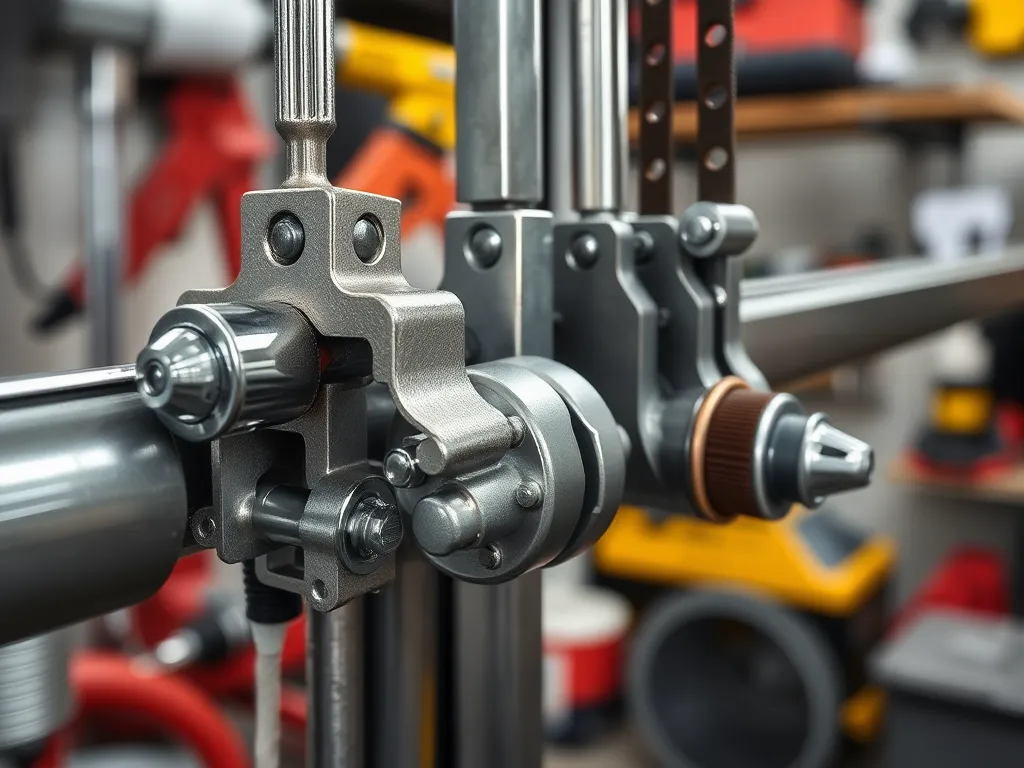Essential Insights: The Role of Lubrication in Garage Door Maintenance

Garage Door Maintenance: Keeping Your Garage Door in Top Shape
Garage Door Maintenance is an essential aspect of home upkeep that is often overlooked. A garage door is not only a functional element of your home, providing security and convenience, but it also adds to the aesthetic appeal. Regular maintenance ensures that your garage door operates smoothly and safely over time, helping to avoid costly repairs or replacements.
this innovative design features cutting-edge wear prevention technology, extending the lifespan of garage doors and reducing maintenance costs.
Incorporating routine inspections and upkeep into your home maintenance schedule can significantly enhance the longevity of your garage door. This includes checking the door's alignment, springs, rollers, and tracks for wear and tear. By being proactive, homeowners can identify potential issues before they escalate into bigger problems that require professional intervention and financial investment.
Additionally, understanding the importance of lubrication in your garage door system is crucial for its seamless operation. Over time, moving parts can become stiff and may require lubrication to maintain their functionality. Employing the right techniques and materials will keep your garage door operating smoothly and quietly, ensuring it serves its purpose effectively for many years to come.
By having a clear plan for Garage Door Maintenance, homeowners can benefit not only from the functional aspects but also extend the life of their garage door. This can contribute to a better investment in your property and ensure that your garage door continues to perform well under varying weather conditions and frequent use.
In this article, we will explore various aspects of Garage Door Maintenance, focusing particularly on the importance of lubrication, types of lubricants, best practices for application, signs that your garage door needs attention, and the pros and cons of DIY versus professional services.
Importance of Lubrication in Garage Door Systems
Lubrication plays a vital role in Garage Door Maintenance. Regularly applying lubricant to the moving parts of your garage door system can help promote smooth operation, which not only enhances the performance of the door but also prevents premature wear on parts such as springs, rollers, and tracks. A well-lubricated garage door operates without unnecessary strain, reducing the likelihood of breakdowns.
Proper lubrication directly impacts the mobility of your garage door. When parts are well-lubricated, they move freely, which minimizes the noise produced during operation. Homeowners can enjoy a quieter opening and closing motion, which is particularly appreciated in residential areas where sound may travel.
Investing in quality garage door systems significantly enhances noise reduction, creating a peaceful home environment.
A regular lubrication maintenance schedule is essential. Many experts recommend inspecting and lubricating your garage door at least twice a year. However, if you use your garage door frequently or live in an area with extreme weather conditions, more frequent maintenance may be necessary to ensure optimal performance.
A well-maintained garage door ensures smooth operation, providing convenience and reliability for everyday use.
Types of Lubricants for Garage Doors
When it comes to choosing a lubricant for your garage door, it's crucial to understand the difference between oil and grease. Oil is generally best for parts that require fluid movement, whereas grease is ideal for areas that need a thicker consistency to stay in place. Both serve their purpose, but selecting the right one is key to effective maintenance.
Different types of garage doors may benefit from specific lubricant products. For instance, vinyl doors often require silicone-based lubricants as they do not cause damage to the material. Steel doors can be treated with lithium-based grease for optimal protection against rust and wear. It's essential to identify the material of your garage door to choose the best product accordingly.
Choosing the right lubricant also depends on your specific needs. Look for products that specify their suitability for garage doors, and consider factors such as temperature range, water resistance, and ease of application. Investing in a high-quality lubricant can make a significant difference in maintenance longevity and performance.
Lubrication Techniques and Best Practices
To effectively lubricate your garage door, follow this step-by-step guide: First, unplug the garage door opener to ensure safety. Next, inspect all moving parts—springs, rollers, and tracks—before applying lubricant. Clean the surfaces with a clean cloth to remove dust and debris. Apply the lubricant directly to the moving parts and wipe away any excess to avoid attracting dirt.
The frequency of lubrication generally depends on usage. For doors that are used multiple times a day, monthly lubrication could be beneficial, while those that are used less frequently may only need lubrication every few months. Regular inspections will help you determine the right schedule.
Avoid common mistakes during lubrication, such as over-lubricating, which can lead to a buildup of grease or oil that attracts dirt and grime. Additionally, never use WD-40 as a long-term lubricant, as it's primarily a solvent and not meant for long-lasting lubrication.
Signs Your Garage Door Needs Lubrication
Being aware of the symptoms of inadequate lubrication can help you maintain your garage door effectively. If your door is making unusual noises, such as grinding or squeaking, it may be time for lubrication. Difficulties in opening and closing the door can also signal a need for maintenance.
Weather conditions can also impact garage door performance. Extreme cold can cause lubricants to thicken, resulting in stiffer movement. Conversely, high humidity can lead to rust, making it crucial to check and maintain lubrication during seasonal transitions.
If you notice persistent issues despite regular maintenance, such as continuing noise or operational problems, it may be time to seek professional service. An expert can provide a thorough inspection and recommend targeted maintenance strategies tailored to your specific garage door system.
DIY vs Professional Lubrication Services
When considering Garage Door Maintenance, homeowners often weigh the benefits of DIY lubrication against hiring professionals. DIY lubrication can be cost-effective, primarily if you already own the necessary tools and lubricants. However, improper lubrication or neglect can lead to more costly repairs in the long run.
Professional maintenance comes with several benefits, including expertise and specialized tools that can identify underlying issues. Professionals can also provide advice on long-term maintenance strategies tailored to your specific garage door system. They may also notice problems that a homeowner may overlook, ensuring a comprehensive maintenance approach.
Generally, consider calling an expert for lubrication if you're uncomfortable performing the maintenance yourself or if your garage door shows signs of more significant issues. Engaging a professional can save time and provide reassurance that your garage door receives the attention it needs.
